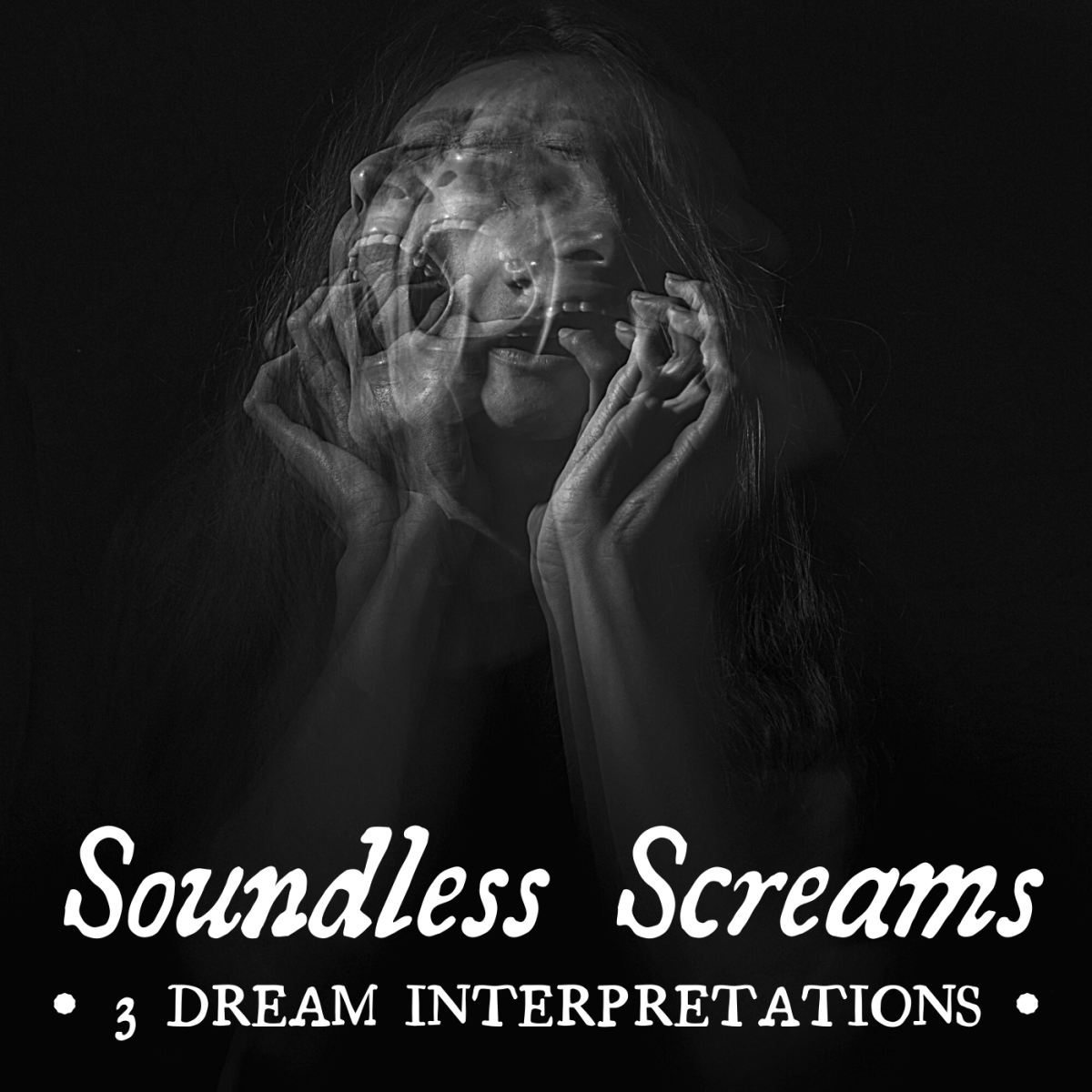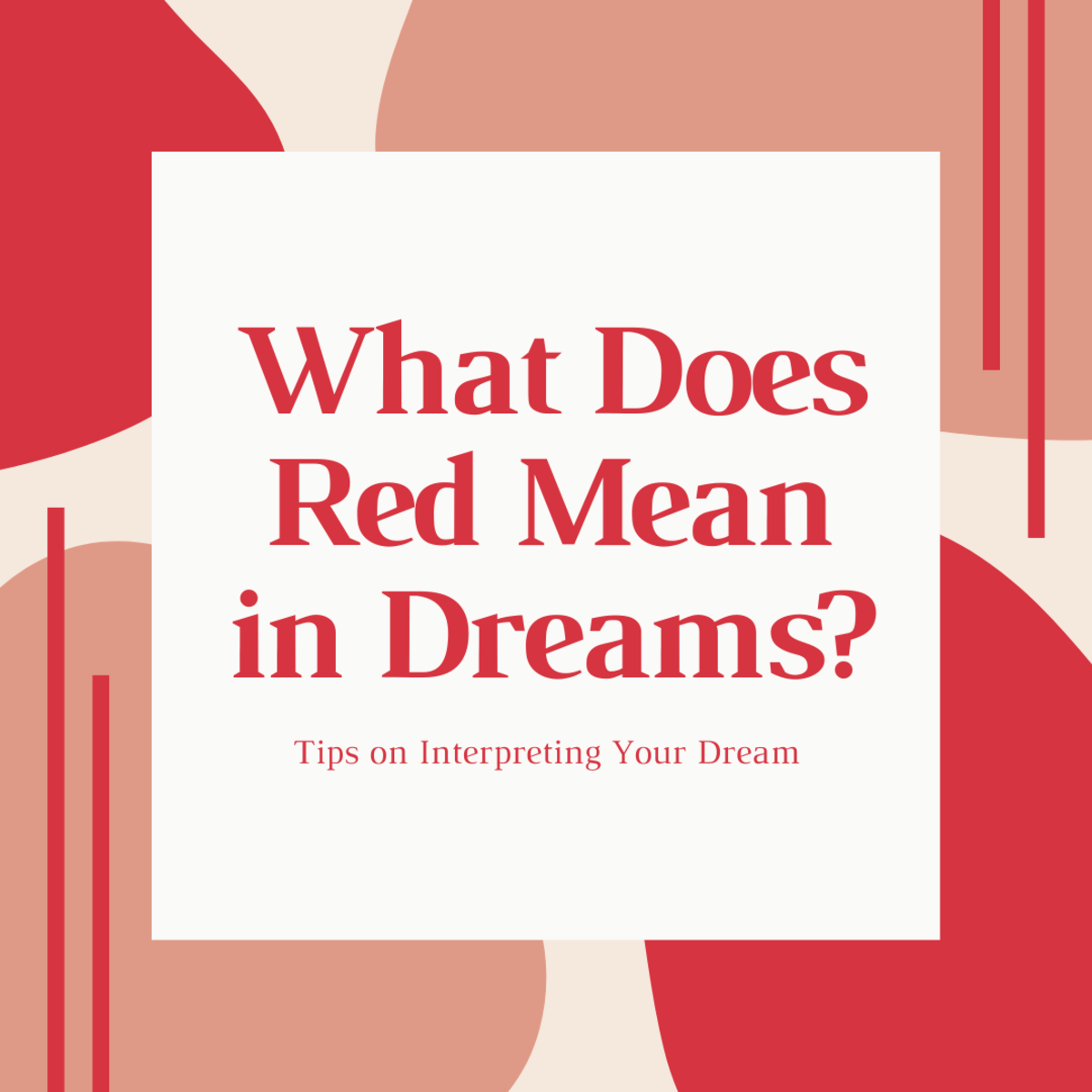Why Do We Have Nightmares - A Look at Causes, Common Recurring Dreams and Possible Meanings, and How to Stop These

Nightmares are common in both children and adults
Do you have disturbing dreams that shake you and wake you up from a deep sleep? If yes, you are experiencing nightmares. While it is common for kids under the age of ten to have these terrifying dreams, most adults will experience at least one nightmare during their lives. So, if you are an adult and have recurring nightmares, don't be surprised. You are not alone. Nightmares are common among adults as well.
Nightmares are different from night terrors
You may think that you are experiencing nightmares, but are you sure about this? Maybe what you are experiencing are night terrors and not nightmares. What is the difference between the two?
If you experience these terrifying dreams during the earlier part of your sleep cycle, during a non-rapid eye movement (NREM) stage, what you are experiencing are sleep or night terrors. Nightmares, on the other hand, occur later in the sleep cycle, during the rapid eye movement stage, when most dreams occur.
You also won't clearly remember a night terror. Your memory of the dream will be fuzzy but you will wake up yelling and panicky and may even do something that it is harmful to you. On the other hand, nightmares are clearly remembered by the dreamer and they will usually occur quite closer to the morning.
Do you have nightmares?
Why do we have nightmares?
There are various causes of nightmares. They may just occur out of the blue one night because of a late night snack which signals your brain to stay active.
Antidepressants and narcotics and any chemicals that act on the brain may trigger recurring nightmares. Blood pressure medications have also been found to cause these terrifying dreams. These may occur as a result of withdrawal from alcohol, illegal drugs and chemical-altering medications as well.
Problems in relationships, job losses, failures in examinations, death, and similar events may also lead to nightmares. Anxiety, depression, post-traumatic stress disorder (PTSD) have also been known to trigger recurring nightmares. Sleep disorders such as sleep apnea, restless leg syndrome (RLS) may also be responsible for these dreams.

An interesting cause of nightmares
While most of you may have heard about the above mentioned causes of these terrifying dreams, what may come as a surprise to you is that your personality type may be responsible for your recurring nightmares as well.
Two types of personality types have been described, namely, thin boundary and thick boundary personalities. Thin boundary personalities are believed to experience longer dreams, have high emotional sensitivity during their dream state, and see their dreams more clearly, with lots of colors and feelings and interaction.
Unlike thick boundary individuals, these people do not clearly differentiate between the imaginary and the real and between thoughts and feelings. They also generally have strong memories from childhood (often bad memories) and do not have a strong sense of self. Thin boundary individuals also have difficulty focusing on one thing at a time and often indulge in daydreaming and fantasizing.
So, if you think you are a thin boundary individual, this could be the cause of your recurring nightmares.
Fast facts about why do we have nightmares and how to stop these
- There may be several causes of nightmares.
- Nightmares are different than night terrors.
- Your personality type may be responsible for recurring nightmares.
- Nightmares may indicate how you feel during waking life.
- Imagery rehearsal technique (IRT) may help to stop nightmares.
- Staying aware of your thoughts and feelings during your waking life may help to stop nightmares.
Common nightmares and their possible meanings
Nightmares are scary and there is no doubt about that. While the theme of these dreams may vary from person to person, there are certain plots which are often found commonly in most of these dreams. A look at these common themes may be able to answer your question about why you have recurring nightmares.
For example, dreaming that you are being chased may indicate that you are running from a circumstance that you are scared of or just feel too overwhelmed to tackle.
If you find yourself lost or trapped in your dream, it may be time to look at a current situation in life. Do you think that you are trapped in this situation or have no idea how to deal with it?
Similarly, falling or drowning nightmares may actually indicate that you feel that you are under tremendous pressure in a situation.
Another common dream that terrifies people is to see oneself as naked. Why do we have this nightmare? It usually happens when you are trying to hide who you actually are from others and are scared that you may get exposed. These dreams are often indicative of a poor self-esteem.
If your dream is about a natural disaster, you may be feeling defeated in your current situation. You may feel that whatever you do the situation is going to end everything for you.
You may have cleared all your school and college examinations several years back, but that doesn't mean that you won't experience failure in tests as part of your dream. These dreams may also appear as panicking at an event or while on stage and may indicate that you are worried about an upcoming event and are scared you may fail at the task.
Do you have dreams of damage to your house or possession? Do you know why we have these nightmares? It indicates that you are scared of losing something valuable in your life, often to deceit. It may also indicate that you are scared of losing your pride or prestige in society.
Similarly, car trouble may indicate lack of control on one's life. Dreams about death often indicate emotional hurt or may be your inner voice telling you about the death of a close relationship.
How to stop nightmares
If the dreams are frequent or severe, and are constantly disturbing your sleep, you may want to seek medical help. Treatment may involve dealing with underlying disorders such as sleep apnea or anxiety disorders.
You may also want to introduce regular exercise in your daily schedule. Yoga and meditation are especially useful for reducing the frequency of these nightmares.
Avoid alcohol, caffeine, and nicotine since these can disturb your sleep patterns. Make sure to sleep in a tranquil and relaxing place. Avoid taking your work into your bedroom since the stress may affect your sleep as well.
Behavioral technique to stop nightmares
Imagery rehearsal treatment is a form of therapy which has been effectively used for the treatment of recurring nightmares, especially those caused by PTSD. This form of CBT involves a three-step process.
First, you briefly write about your most recent nightmare.
Secondly, come up with a way to change the nightmare.
Thirdly, imagine this changed version of the nightmare for a few minutes every day.
The technique may sound simple, but some people may find it difficult to come up with an altered version of their terrifying dream or to imagine it vividly. In such cases, it may be appropriate to consult a health practitioner who is experienced in this technique.
You can practically use this technique to alter any of your dreams. The more clearly you can imagine the altered dream in your waking life, the less likely you are going to experience the terrifying dream while sleeping.
Get rid of your nightmares
Knowing why you have nightmares is the first step towards stopping these from recurring. Keep in mind that staying aware of your thoughts and emotions in your waking life is an important step in stopping nightmares.
These terrifying dreams are often indicative of a thought or emotion that you may be suppressing in your waking life. These may also be the voice of your inner self trying to draw your attention towards the reality of your current waking life.
So, make sure to take steps to stay attuned with your inner self. Be aware of your thoughts and emotions. If you do have nightmares, ask yourself if these dreams are actually trying to tell you something that you may not be ready to accept in your waking life.
If you are still wondering why you have nightmares, you may want to get medical help to ascertain whether any underlying sleep or anxiety disorders may be the cause of your problem.
This content is copyrighted and no one has permission to copy it. If you like this article, please link back instead of copying the content.

Read more articles
- Why Can't I Sleep at Night? - Go Deeper for the Trut...
If you have already tried everything and are still wondering why you can't sleep, then maybe you need to go deeper for the truth. Find out what could be the deeper emotional, psychological, or maybe spiritual causes of insomnia. - Why Am I So Sad?
Feeling sad? While there could be innumerable reasons for feeling sad, sometimes you just don't know why. Find out some of the reasons here and take a look at certain causes of unexplained sadness. - Should I End This Relationship? - Reasons You Should...
Are you having doubts about your relationship? Should you walk out of your marriage? Here are a few reasons why you should definitely end a long-term relationship or marriage.
© 2013 Better Emotions













